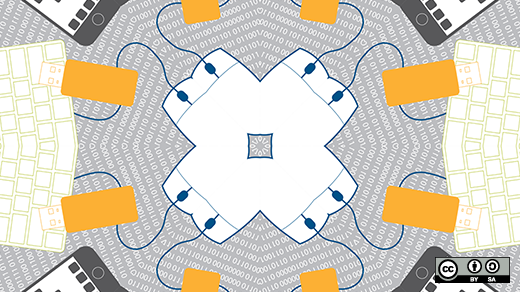Computers are incredible tools that let users doing amazing things, but sometimes things go wrong. The problem could be as small as accidentally deleting files or forgetting a password—and as major as having an operating system rendered non-bootable by file system corruption. Or, worst case scenario, a hard drive dying completely. In each of these cases, and many more like them, there are specialized tools that can aid you in fixing problems with a computer or help you be prepared for when something bad does happen.
Many of these tools are actually highly-specialized Linux distributions. These distributions have a much narrower focus than the major desktop and server Linux distributions. So while you can find the vast majority of the same software packages are included in the repositories for the major distributions, these specialized distributions are designed to put all the programs you would need for computer repair or backup/restoration in one convenient place. Many of them even have customized user interfaces to make using the software easier.
Below, I look at five different Linux distributions designed to make your life easier when computers start giving you a headache. Give them a try, and make sure you keep CDs or USB drives with your favorites handy for when something does go wrong. If you like, you can even try using Scott Nesbitt's instructions for how to test drive Linux to install these distributions to a USB stick instead of burning a CD or using the sometimes more complex instructions available on the projects' websites for creating a bootable flash drive installation.
Clonezilla Live
Designed for backup and recovery of disk images and partitions, Clonezilla Live is an open source alternative to Norton Ghost. Clonezilla can save images to and restore images from a local device (such as a hard disk or USB flash drive) or over the network using SSH, Samba, or NFS. The underlying software used for creating images is Partclone, which provides a wide array of options and supports a large number of file systems. Clonezilla's user interface is a spartan ncurses-based menu system, but is very usable. The menu options in the interface walk you through everything. As an added bonus, once you have selected a task, Clonezilla provides you with the command line options you can use to run that task again without having to work your way through all the menus.
Clonezilla is developed by Taiwan's National Center for High-Performance Computing's Free Software Labs and is released under the GNU General Public License Version 2. Users needing an even more robust backup and recovery system should check out Clonezilla Server Edition, which works much like the Live version but requires a dedicated server installation.
Rescatux
Rescatux is a repair distribution designed to fix problems with both Linux and Windows. It's still a beta release, so there are some rough edges, but it provides easy access to various tools using its wizard, Rescapp. The wizard helps you perform various repair tasks without having to have extensive knowledge of the command line. You can reset passwords for Windows and Linux, restore GRUB or a Windows Master Boot Record, and perform a file system check for Linux systems. There are also a few "expert tools" for testing and repairing hard disks and recovering deleted files. Despite the beta nature of Rescatux, the inline documentation is already quite good, and you can learn even more by visiting the Rescatux wiki or by watching the tutorial videos on YouTube.
Based on Debian 7 (Wheezy), Rescatux is released under Version 3 of the GNU General Public License.
Redo Backup & Recovery
Like Clonezilla Live, Redo Backup & Recovery uses Partclone to clone disks and partitions. However, unlike Clonezilla, it has a polished graphic user interface. Redo Backup & Recovery boots into a graphic environment and has a lightweight desktop which provides access to other tools you can use while Redo Backup & Recovery completes its tasks. In addition to the backup & restore functionality, Redo Backup and Recovery's desktop includes a file manager, terminal, text editor, web browser, and utilities to recover deleted files, manage partitions and logical volumes, and to erase all data on a drive and restore it to factory defaults.
The Redo Backup & Recovery utility is released under the GNU General Public License Version 3 and is based on Ubuntu 12.04 LTS.
SystemRescueCD
Aimed at system administrators, SystemRescueCD is a powerful tool for repairing Linux systems. By default, SystemRescueCD boots into console interface with very little hand-holding, but a welcome message provides basic instructions for starting the network interface, running various command line programs (text editors and a web browser), enabling NTFS support in order to read Windows hard drives, and starting the XFCE-based graphical desktop environment. SystemRescueCD does include a large number of utilities, but you really need to know what you are doing to use it.
SystemRescueCD is based on Gentoo and is released under the GNU General Public License Version 2.
Trinity Rescue Kit
Designed for repairing Microsoft Windows, Trinity Rescue Kit provides a wide variety of tools to help rescue a broken Windows system. Trinity includes five different virus scanners: Clam AV, F-Prot, BitDefender, Vexira, and Avast (but Avast does require a license key). It also has an option for cleaning junk files, such as temp files and files in the Recycle Bin. Password resetting is handled by Winpass, which can reset passwords for the Administrator account or regular users. All of these features, and several other more advanced functions, are accessed using a interactive text menu, which does include a very extensive help file. It might intimidate someone not used to using a text-based interface, but Trinity Rescue Kit is really easy to use.
Trinity Rescue Kit is released under Version 2 of the GNU General Public License.






11 Comments